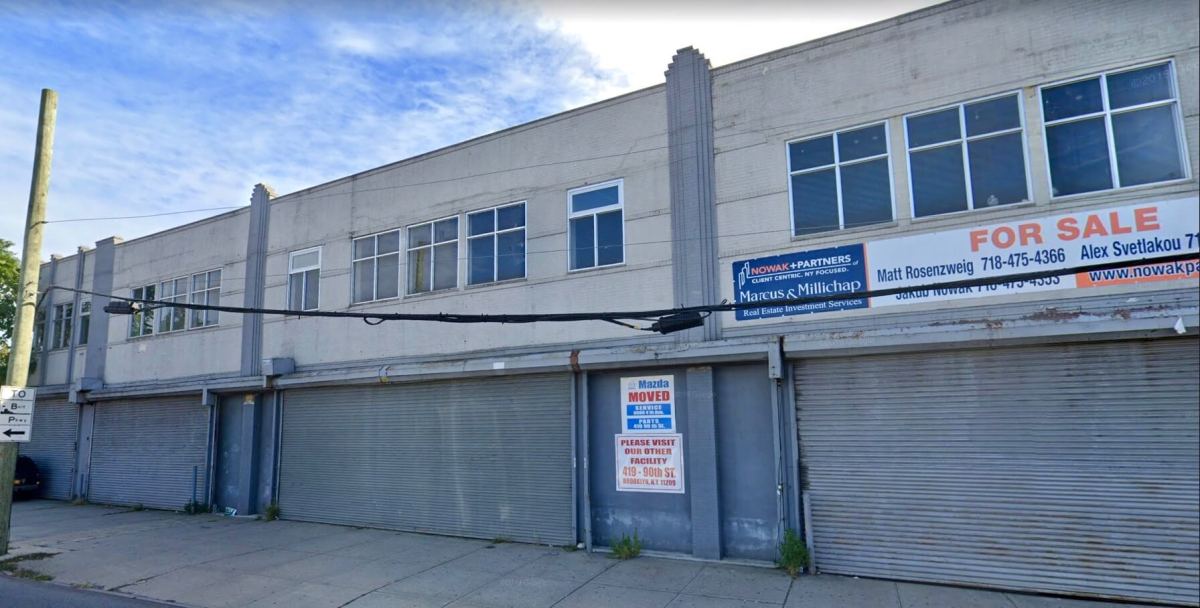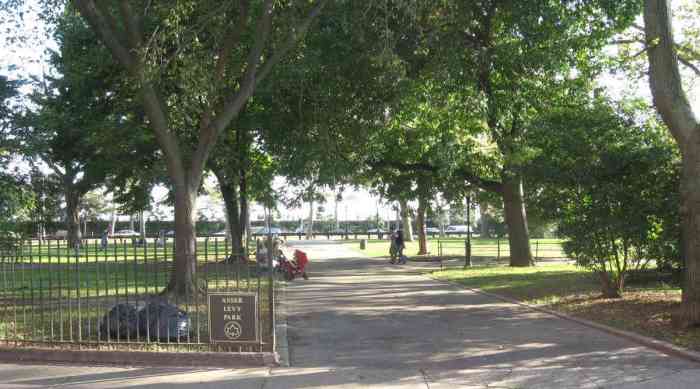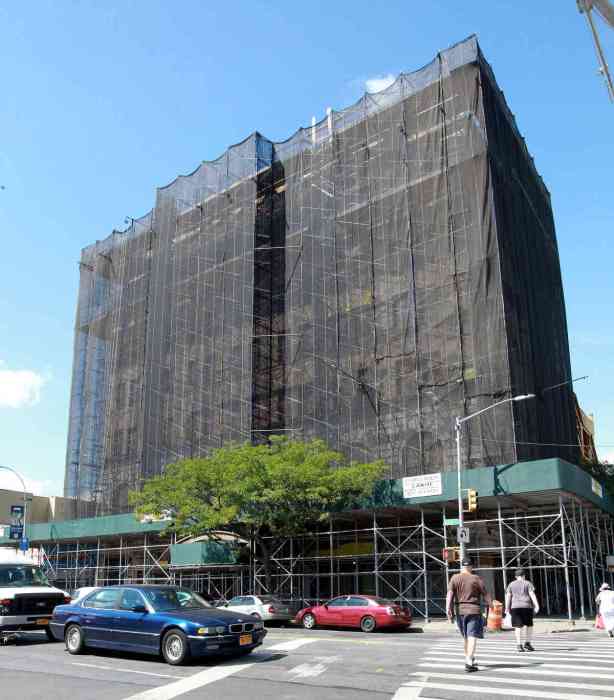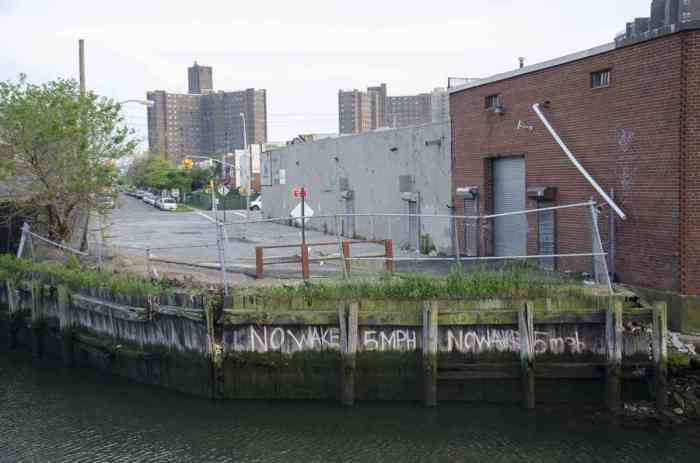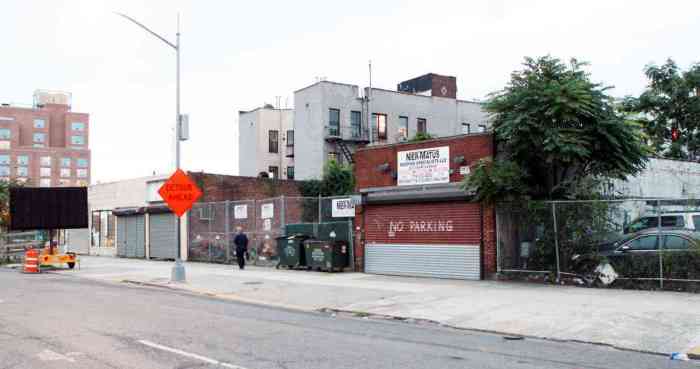A virtual public meeting about a proposed Brighton Beach homeless shelter quickly spiraled into vitriolic chaos as hundreds of attendees took to the chat box to denounce the project.
More than 10 participants got booted from the 450-person meeting and dozens more were muted for spewing hate about the homeless men who will likely move into the 170-bed shelter coming to 100 Neptune Ave.
“I have seen the condition of their living, which is not appropriate for middle class [sic], and I was wondering what does it mean for these people to go back to work, and they prefer to live off the government on handouts and get public assistance?” said a man who identified himself only as Joseph. Joseph was kicked off the call shortly after beginning his remarks.
The public meeting, hosted by Community Board 13, meant to give locals the opportunity to ask questions about the homeless shelter, which is set to be operational by the end of 2021. The shelter is one of the 90 community-based shelters that the city aims to build by the end of the year to combat homelessness.
Though the meeting was purely informational — since the Department of Homeless Services does not need community approval to build the facility — most attendees voiced their opposition to the new project. One common concern was the site’s potential for contamination after serving for years as a garage and auto body shop.
Though the city has already committed to conducting an Environmental Impact Statement of the site before moving its plans forward, one local environmentalist argued that remediation comes with a hefty price tag.
“In addition to the hundreds of thousands of dollars worth of tests that have to be done, there are environmental engineers and consultants that have to be paid,” said Ida Sanoff. “So how do you justify spending hundreds of thousands of dollars of taxpayer money that should be spent on the homeless on cleaning up a brownfield instead of using a green site, which would be a lot cheaper?”
A representative with the city’s Department of Homeless Services responded that the developer would pay for remediation, not the city.
“When [the Department of Social Services] takes over a property, all that remediation work that would have taken place and that would not be paid for by the city, it would be paid for by the developer,” said Matt Borden. Borden did not say who the developer was for the Neptune Avenue property, and DHS spokespeople did not respond to multiple requests for clarification.
Other attendees called into question the shelter’s service provider, CORE Services Group, pointing to the Brooklyn-based nonprofit’s nearly 300 violations in 2019.
A majority of those violations came from CORE’s cluster sites — temporary apartment units in privately-owned buildings — which CORE closed down in October 2020. This past November, CORE had 60 open violations across its 17 locations in shelters and hotels, most of which were issued by the Department of Buildings.
Many attendees also worried that the shelter’s residents would loiter around the neighborhood. Though CORE representative Gordon Jackson argued that each shelter client has an individualized schedule that keeps them busy, local Councilman Chaim Deutsch said he’s heard otherwise — citing a recent visit to a CORE shelter during which one resident allegedly complained that he had no schedule.
“[The resident] told me, he says, ‘Employment services? I don’t have any of that,'” said Deutsch, who has repeatedly voiced opposition to the shelter. “He told me that there’s not a lot of activities. He said, ‘I don’t know — I walk in, I walk out, I come back. There’s nothing really to do.'”
Only one caller spoke in favor of the shelter, while most others decried the shelter’s potential for crime. Locals worried that the shelter’s residents could pose a threat to students at PS 771 and Bay Academy, located a couple blocks away, and that they could deface local Holocaust monuments.
Representatives from CORE and DHS became increasingly frustrated with the comments, and one called the claims “slanderous.”
“Folks that are living in the site are just individuals that are in between being housed, and at the end of the day, they’re trying to get back up on their feet,” said Borden with DHS. “I think a lot of times people make assumptions regarding crime and criminality and the kinds of concerns folks talked about in this call … and I think that’s quite slanderous to these folks.”
Things grew even more heated in the chat section, where attendees spoke about hiring a lawyer to fight the new shelter and hurled negative comments at anyone who spoke positively of the proposal.
“CORE Service group, its all BS, you can’t control 170 people with mental, AIDS, and other disorders,” wrote Mark Rappaport. “If this shelter ever built, the whole area in radius of 2 miles will be dead in short time and city gona loose more taxpayer [sic].”
Other commenters attacked the only woman to speak in favor of the project.
“Who in their right mind would be in support of this ?” asked Allen Kittell.
“Sick people like this girl who just spoke,” responded Sally Zarbailov, prompting two others to theorize that the city paid her to testify.
The two lawmakers on the call, Assemblyman Steven Cymbrowitz and Councilman Deutsch, said they opposed the plan because they believe the city should install permanent housing with social services, rather than shelters.
“As someone who has been in the affordable and homeless housing field for more than three decades, I’m telling you, this plan is a mistake and the city needs to withdraw it,” Cymbrowitz said. “Our city’s homeless deserve better, as does our community.”


